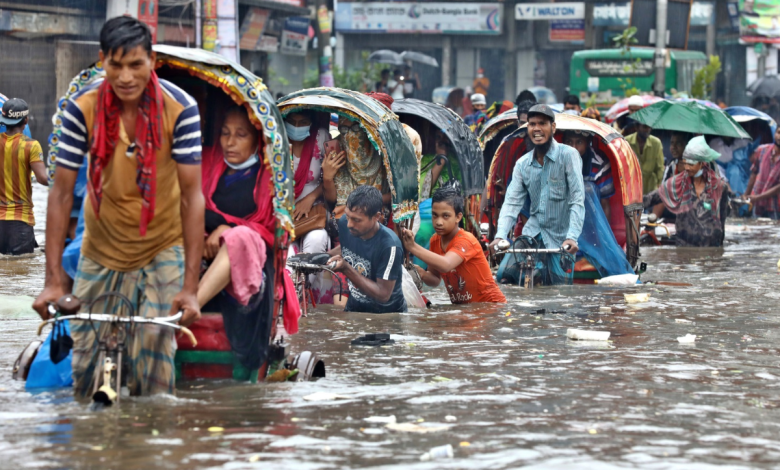Empowering the Global South in Climate Action

Unprecedented heatwaves, wildfires, and other extreme weather phenomena have gripped the Northern Hemisphere in recent months, forcing people all over the world to face the hard reality of climate change. With fervent pleas for action echoing around the globe, it is obvious how urgent it is to solve climate change. However, we mustn’t ignore a major component—the hardship of the Global South—in our collective response to this crisis.
The poorest parts of the world, known as the Global South, have long struggled with the severe effects of climate change. The suffering experienced by the Global South continues to be overlooked and underappreciated, despite the media’s tendency to focus on the most recent climate-related calamities in wealthier countries. The worldwide reaction to last year’s catastrophes, which included floods that devastated Bangladesh, droughts that plagued the Horn of Africa, and deadly river contamination in Iraq, was far from adequate. Why?
This disparity begs the worrisome question: Why are summer vacation cancellations by tourists more newsworthy than the tens of millions of climate refugees who will be forced to flee from areas that will become untenable due to warming temperatures and extreme weather events in the coming decades?
The Global South, which is already disproportionately impacted by climate change, really has very little influence over major world decisions. Just 14 percent of global climate finance goes to the 47 least developed nations. But despite having fewer resources and support, many communities have demonstrated extraordinary resilience, frequently developing creative adaptation solutions.
Geopolitical boundaries cannot stop climate change, thus neither can the methods to stop it. The perspectives of leaders from the Global South, indigenous people with centuries of experience in sustainable land management, and countries that have survived in arid environments must be highlighted in the discussion. Collaboration is essential to putting effective solutions into practice, both at the macro and micro levels.
There is reason for hope despite the catastrophe. Motivating businesspeople, creators, and agents of change from the Middle East and North Africa are developing innovative and useful solutions. Agricultural and farming programs, for instance, are lowering supply chain emissions and food waste. Architects are creating environmentally friendly alternatives for construction, such as concrete made of salt.
The fact that many of these initiatives are being led by young people who won’t stand idly by as climate change occurs is extraordinary. To safeguard their communities against high heat, these leaders are planting trees, upgrading vehicles, and assuming positions like that of Asia’s first top heat officer.
Governments, international organizations, non-governmental organizations (NGOs), and businesses must support these change-makers for these ideas to materialize into effective solutions. A major problem is finding funding, particularly in the Global South where access to venture capital and green financing is constrained. While programs like the COP27-agreed loss and damage fund are important, impactful investment and access to green financing are also necessary.
Also Read: Unearthing Trouble: The Global Impact of Marine Sand Extraction
The fight against climate change involves the Global South actively, not just as a victim. Not only must the world listen, but it must also educate itself, make investments, and make sure that no voice or solution is overlooked. It would be a great injustice to these communities as well as the planet as a whole to ignore the suffering of the Global South in the fight against climate change. Let’s keep in mind that our success in the pursuit of a sustainable future depends on our diversity, cooperation, and unshakable dedication to justice.



